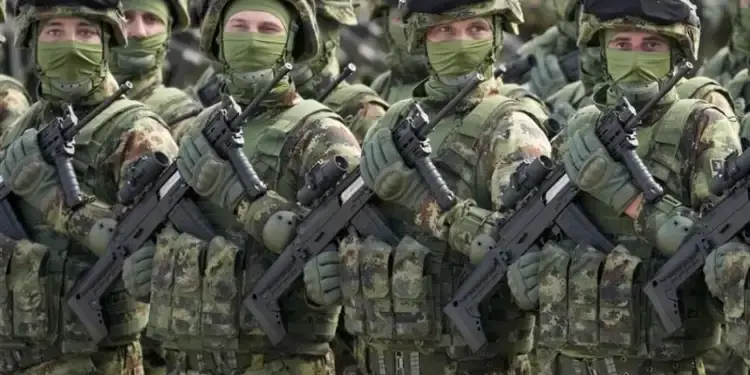Faced with a tense geopolitical context, especially with the war in Ukraine, several European countries re -examine the question of compulsory military service. The need to strengthen the workforce of the armed forces is becoming more and more pressing, thus fueling a debate that seemed closed for several decades.
A discussion relaunched by Poland
The debate was recently revived after the declarations of the chief of staff of the Polish armed forces, Wiesław Kukuła, who underlined the need for his country to consider a return to compulsory military service. However, the Polish defense vice-minister Cezary Tomczyk said that the government was not planning to establish this measure again. He nevertheless specified that alternatives in terms of military training would be set up, without detailing its nature.
In a context of increasing tensions with Russia, several NATO member states seek to strengthen their military capacities. France, for example, has adopted a strategy aimed at encouraging soldiers to prolong their commitment, while other countries, such as Croatia, envisage a reintroduction of compulsory military service.
A question that grows in Europe
A report published by Foreign Policy last February indicates that the European Union is increasingly debating the return of compulsory military service. The end of the Cold War had led many European countries to abandon this practice in favor of more limited professional armies. However, the current security situation leads certain governments to reconsider this option.
According to a NATO diplomat quoted by the report, the question of compulsory recruitment is now openly addressed between the Allies, with the aim of identifying best practices in terms of staff mobilization. Historically, conscription was generalized in Europe, but over the decades, several countries have opted for its abolition. The United Kingdom was the first to end conscription in 1960, followed by France and the Netherlands in the 1990s. Today, only a few countries, such as Finland and Switzerland, still maintain compulsory military service.
With persistent tensions between Europe and Russia and instability in the Middle East, several European states are reassessing their defense strategies.
Washington’s attitude, a key factor
Since Donald Trump’s arrival at the White House last January, Europeans’ confidence in their American ally has been eroded. The American president has often conditioned his support for allies to financial or strategic counterparts.
The announcement, last Monday, of a freezing of American military aid to Ukraine accentuated European concerns, especially since this decision intervened after a prolonged telephone exchange between Trump and Russian President Vladimir Putin on February 12. This development has led Europeans to consider greater autonomy in defense, in particular through a overhaul of their military recruitment policies.
Potential involvement of immigrant communities
While some countries reintroduce compulsory military service, this could affect members of the Tunisian diaspora residing in Europe. A significant part of Tunisians installed in European countries has the nationality of their country of residence, which could make them eligible for possible conscription.
Although leftist parties in Europe are mainly opposed to this prospect, several political parties, especially on the right, plead in favor of the return of military service and the involvement of young people, including those from immigration.
In Germany, the chief of the Conservative Party CDU, Friedrich Merz, recently elected, posted his desire to strengthen the role of his country within the European Union and has not hidden his intention to restore conscription. The German army also considers that this measure could be a solution to the shortage of recruits, a problem that affects both the officers and the soldiers of the rank.
While Europe is repositioning in the face of security challenges, the question of compulsory military service may well return to the heart of national defense policies in the years to come.








